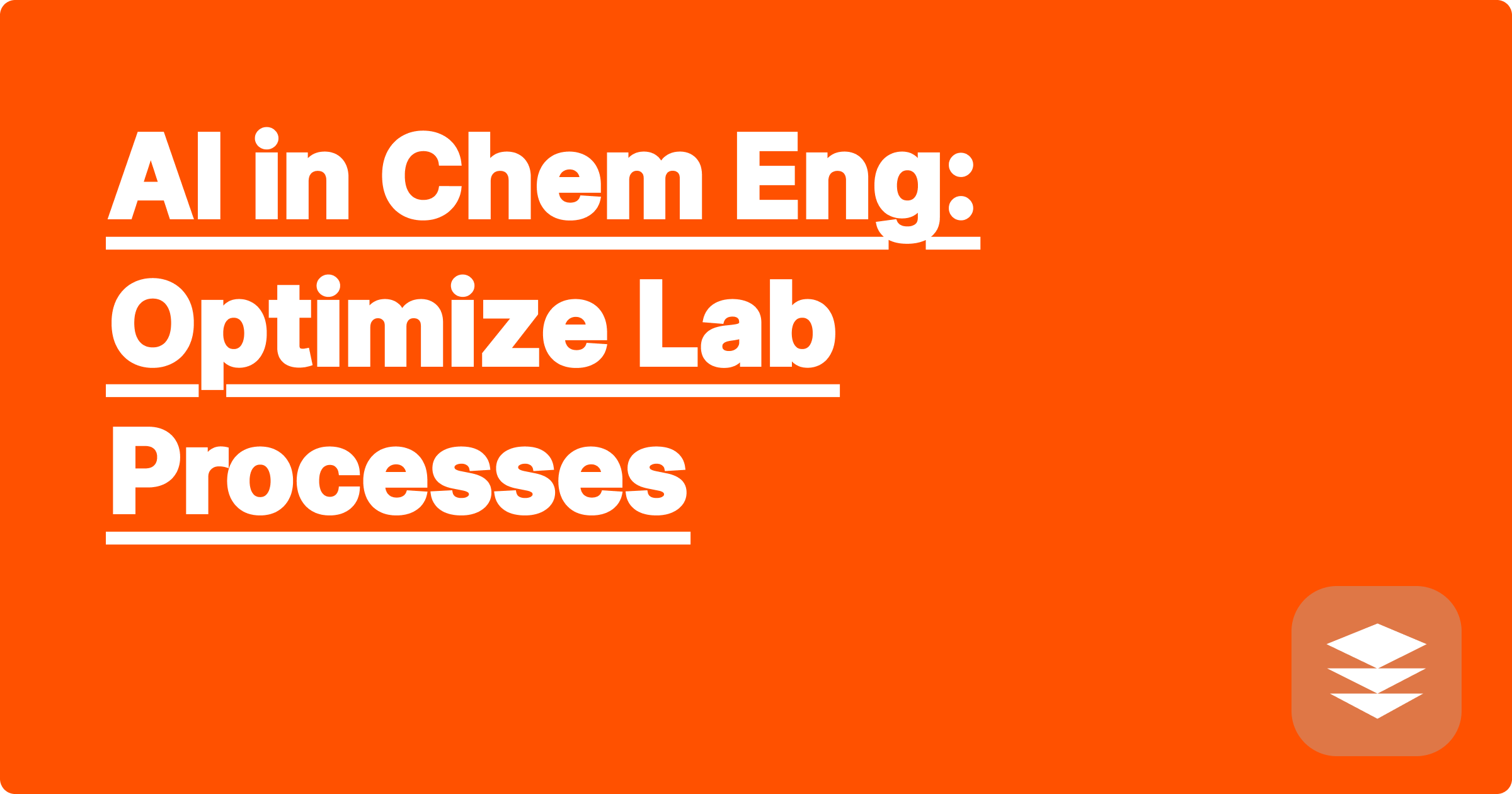
AI is rapidly transforming industries, and the field of chemical engineering is no exception. For STEM students and researchers, particularly those in chemical engineering, harnessing the power of AI can be a game-changer, offering unprecedented opportunities to optimize lab processes, accelerate research, and ultimately, achieve breakthroughs faster than ever before. Imagine a world where tedious, repetitive lab tasks are automated, experimental designs are optimized in seconds, and complex data analysis is handled effortlessly. This isn't science fiction; it's the reality of AI in the modern chem lab. This blog post will explore how AI can revolutionize your workflow, allowing you to focus on the more creative and intellectually stimulating aspects of your work, whether you’re a first-year undergraduate or a seasoned PhD candidate.
The traditional approach to chemical engineering lab work often involves laborious manual processes, time-consuming data analysis, and the potential for human error. This can hinder progress and limit the scope of research. However, by integrating AI into the lab, we can dramatically improve efficiency, accuracy, and overall productivity. This not only benefits individual researchers by freeing up their time and reducing frustration but also accelerates the pace of scientific discovery as a whole. This is particularly important in a field like chemical engineering, where innovation is crucial for addressing global challenges such as developing sustainable energy sources, creating new materials, and improving drug discovery processes.
Chemical engineering lab work involves a complex interplay of experimental design, data acquisition, analysis, and interpretation. Traditionally, these steps have been largely manual, requiring significant time and effort. Designing experiments often involves extensive literature reviews, calculations, and meticulous planning. Data acquisition can be tedious, involving hours spent collecting measurements and recording observations. Once the data is collected, analysis can be a daunting task, requiring specialized software and statistical expertise. Furthermore, the entire process is susceptible to human error, which can lead to inaccurate results and wasted time. These bottlenecks can significantly impede research progress, especially for students and researchers working on complex projects with limited resources and time.
AI offers powerful tools to address these challenges and streamline the entire lab workflow. Imagine having a virtual AI partner, or GPAI, to assist you at every stage. GPAI can be conceptualized as a personalized AI assistant that can help you strategize your research, manage your time, analyze data, and even conduct literature reviews. For example, GPAI can help you formulate research questions, identify relevant literature, and suggest experimental designs based on existing data. Furthermore, AI-powered tools can automate data acquisition, reducing the need for manual measurements and minimizing human error. Sophisticated algorithms can analyze large datasets quickly and accurately, identifying patterns and insights that might be missed by manual analysis.
Integrating AI into your lab workflow doesn't have to be complicated. Start by identifying the specific areas where AI can provide the most benefit. Perhaps you're struggling with data analysis, or maybe you're spending too much time on literature reviews. Once you've identified your needs, you can start exploring the wide range of AI tools available. For instance, tools like ChemDraw can predict chemical properties and reactions, saving you valuable time in the design phase. Synaptic is another excellent tool that can automate literature searches, sifting through thousands of articles to find the most relevant information for your research. Then there’s DoE Generator, which can help design optimal experiments based on your specific objectives. These are just a few examples of the many specialized AI tools available for chemical engineers. Start by experimenting with different tools to find the ones that best fit your workflow.
Consider a scenario where a researcher is trying to optimize the reaction conditions for a new chemical process. Traditionally, this would involve numerous experiments, varying different parameters like temperature, pressure, and reactant concentrations. However, using an AI-powered tool like Process Optimization Software, the researcher can input the desired outcome and the software will automatically suggest the optimal reaction conditions. This can drastically reduce the number of experiments needed, saving valuable time and resources. Another example is in data analysis. Imagine having to analyze hundreds of spectra from a complex chemical reaction. Manually, this could take days or even weeks. However, using AI-powered spectral analysis software, the same analysis can be completed in minutes, providing detailed insights into the reaction kinetics and product formation.
To maximize the benefits of AI in your academic pursuits, consider these strategies. First, embrace a proactive mindset and actively seek out new AI tools. The landscape of AI is constantly evolving, so staying up-to-date with the latest advancements is crucial. Second, don’t be afraid to experiment. Try different tools and see which ones best fit your needs. Third, integrate GPAI into your daily routine. Use it to schedule your tasks, manage your time, and stay organized. Finally, remember that AI is a tool, not a replacement for human ingenuity. Use AI to augment your abilities, not replace them. By strategically incorporating AI into your workflow, you can significantly improve your efficiency, achieve better results, and ultimately, unlock your full potential as a STEM student or researcher.
In conclusion, AI is poised to revolutionize the field of chemical engineering. By embracing these powerful tools, students and researchers can optimize their lab processes, accelerate their research, and ultimately, achieve greater success. Don't wait for the future to arrive; start exploring the world of AI in chem engineering today and unlock the incredible potential it holds. The future of scientific discovery is here, and it's powered by AI. Start exploring and integrating these tools into your workflow, and witness the transformative power of AI firsthand. Your GPAI awaits.
AI in Chem Eng: Optimize Lab Processes
AI for Calculus: Instant Problem Solving
AI Biology Tutor: Ace Your Exams
AI for Robotics: Design & Simulate
AI for Stats: Analyze Data Easily
AI in Computer Science: Learn to Code
AI for Materials Science: Discover
AI for Linear Algebra: Solve Equations